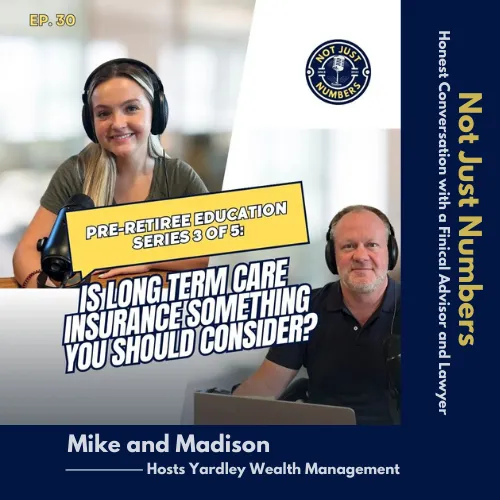Episode 30: Pre-Retiree Education Series 3 of 5: Is Long Term Care Insurance Something You Should Consider?
Hosts: Madison Demora and Mike Garry
Episode Overview
In Episode 30 of “Not Just Numbers: Honest Conversations with a Financial Advisor and Lawyer,” host Madison Demora and Mike Garry, CFP and estate planning lawyer, explore long-term care insurance as part of their pre-retiree education series. They discuss the fundamentals of long-term care insurance, its importance in retirement planning, coverage options, and alternatives. The episode provides valuable insights into the complex decision-making process surrounding long-term care insurance, including its benefits, limitations, and customization options.
Listen to Our Podcast On:
Timestamps
- 00:08 – 00:45 – Introduction to Episode Topic: Is Long Term Care Insurance Something You Should Consider?
- 00:46 – 02:05 – Long-Term Care and Medicaid
- 02:06 – 03:36 – Key Factors When Buying Long-Term Care Insurance
- 03:37 – 06:26 – Alternative Options for Long-Term Care and Evaluation of Financial Alignment
- 06:27 – 09:16 – Downsides and Customization
Follow Us on Social Media
Stay updated with the latest episodes and news by following us on social media:



